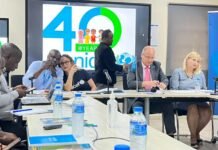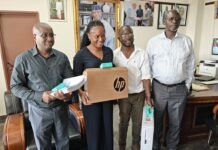By Amin Kef (Ranger)
In the ever-persistent struggle for consistent and reliable electricity provision, the burden on the Government looms large, underscored by the considerable costs involved. Recent bouts of power outages in Freetown have underscored this challenge, disrupting daily life for residents and businesses alike. At the heart of these disruptions lies a financial quagmire: the Government’s indebtedness to a key service provider, Karpowership.
Karpowership, a pivotal player in the energy landscape, reduced electricity supply due to a staggering $46 million owed by the Government, primarily through the Ministry of Finance. This indebtedness not only crippled Karpowership’s operations but also cascaded into broader productivity declines. It took the intervention of Chief Minister, Dr. David Monina Sengeh, to negotiate a partial resolution with the Government paying $17 million, alleviating the standoff and restoring electricity supply to more stable levels.
However, this incident sheds light on a broader systemic issue: the accumulation of debts owed to the Electricity Distribution and Supply Authority (EDSA). Amidst complaints of rampant electricity theft and illegal connections, EDSA contends with another significant hurdle—unpaid debts from both public and private institutions. A staggering NLe 701,703,953.74 remains outstanding, exacerbating the challenges faced by the energy provider.
Among the debtors are institutions, each owing substantial sums to EDSA. While the origins of these debts remain unclear—whether accrued before the transition to prepaid meters or under special payment arrangements—what remains evident is the need for swift resolution.
Critics who point fingers solely at the Government or EDSA for electricity shortages overlook the crucial role institutions play in this equation.
Indeed, the solution to Freetown’s electricity woes lies not solely in Government intervention but in collective civic responsibility. By settling outstanding debts, both public and private institutions can significantly alleviate the strain on EDSA’s resources. Revenues generated from prepaid meter recharges alone cannot suffice to meet the institution’s operational needs.
Clearing these debts is not merely a matter of financial integrity it is an imperative for ensuring stable energy provision. With the financial burden lifted, EDSA can operate more effectively, responding to challenges promptly and independently. Moreover, it relieves the Government of the undue pressure to intervene during critical times, ensuring a more sustainable energy ecosystem for all.
Yet, transparency remains paramount. The public deserves clarity on the identities of debtors and the circumstances surrounding these outstanding obligations. Such transparency fosters trust and accountability within the energy sector, essential for fostering a collaborative approach to resolving these challenges.
It must be noted that the onus rests on institutions and residents alike to fulfill their civic duties. Settling debts not only alleviates financial strain on service providers like EDSA but also contributes to a more stable and reliable electricity supply for Freetown and beyond. Failure to do so risks further disruptions and impedes progress toward a more energy-sustainable future.






